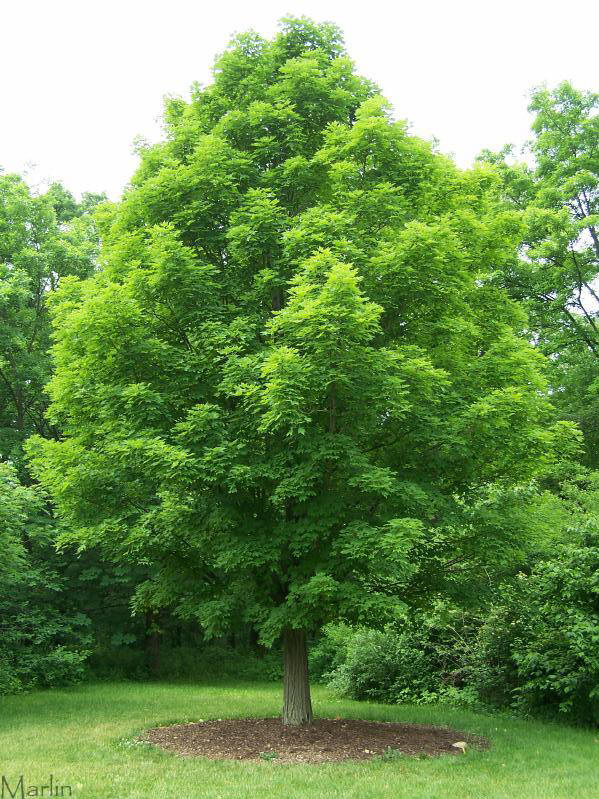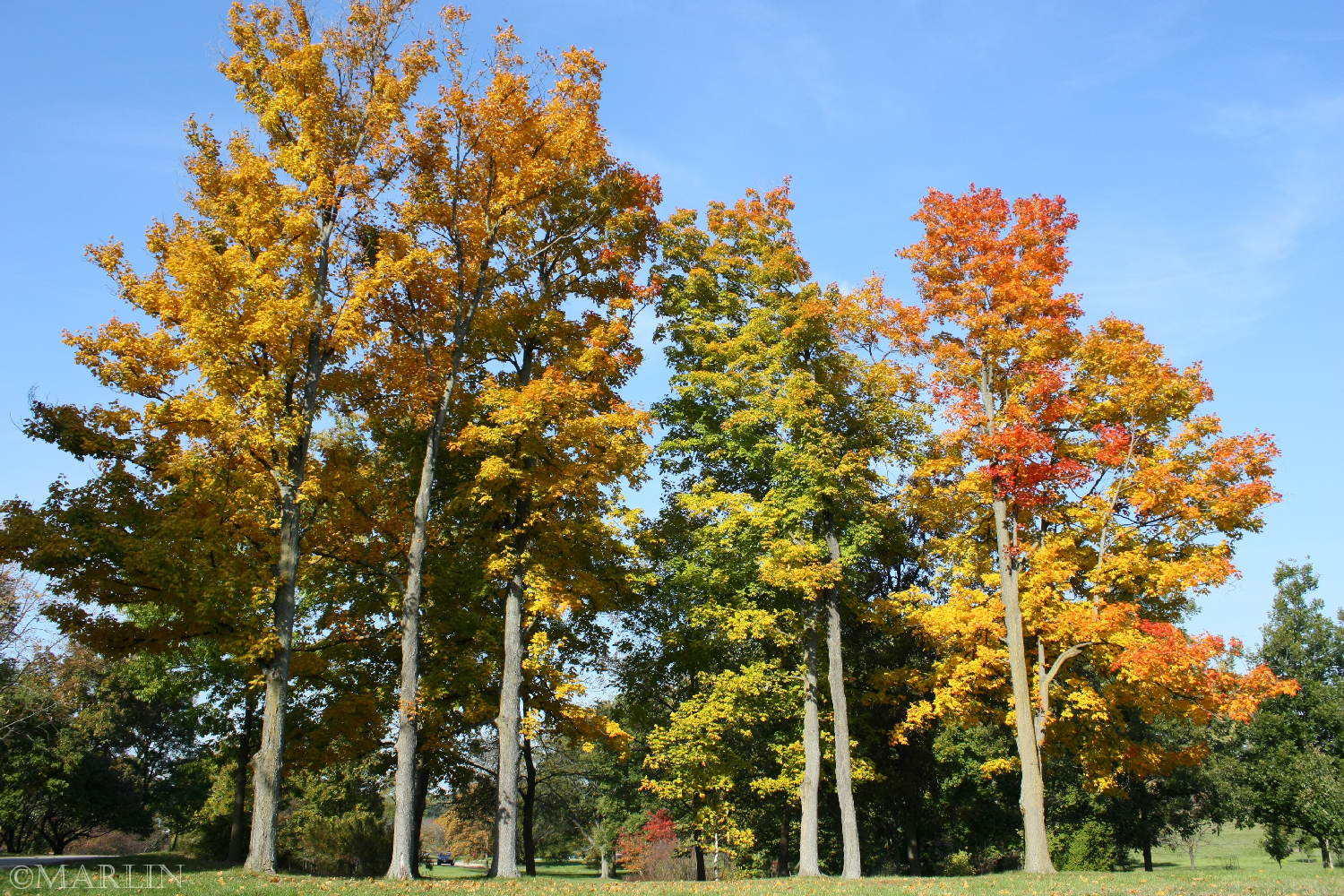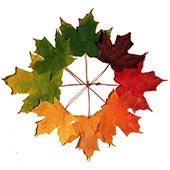Sugar Maple – Acer saccharum
In my humble opinion, the Sugar Maple is the king of showy autumn foliage; its brilliant yellow to orange-red foliage simply screams, especially in direct sunlight. Sometimes called hard maple or rock maple, this is one of the largest and most important of our North American hardwoods.
Height: 60-70′ / Spread: 40-50′ / Zone: 4-8
 Mature Sugar Maple is 30 years old
Mature Sugar Maple is 30 years old
Sugar Maple grows on approximately 31 million acres (about 9%) of the hardwood forests in Midwest and northeast North America.
Sugar maple grows only in regions with relatively with cool, moist climates. They grow best with ranges in temperature from -40° F. in the north to 100° F. in the southwestern areas. Occasional extremes may be more than 20° F. lower or higher than these.
The sugar maple tree is the principal source of maple sugar. Trees are tapped early in the spring for the first flow of sap, which usually has the highest sugar content. The sap is collected and boiled or evaporated to a syrup. Further concentration by evaporation produces the maple sugar. Sugar maple sap averages about 2.5 percent sugar; about 129 liters (34 gal) of sap to make 3.8 liters (1 gal) of syrup or 3.6 kg (8 lb) of sugar.
The fruit of the sugar maple, called a samara, is a double-winged, papery seed-bearing fruit, commonly called a “helicopter” or “whirlybird.” The aerodynamic properties allow the seeds to be dispersed, in a fresh breeze, more than 100 meters (330 feet) from the parent tree. A mature sugar maple can produce between 3,000 and 9,000 pounds of seeds each season [2].
See also: Temple’s Upright and Green Mountain Sugar Maples
References
1. Sugar Maples, Morton Arboretum acc 258-78-1, photos by Bruce Marlin
2. Richard Godman, Harry Yawney, and Carl Tubbs, USDA Forest Service Silvics Manual, ‘Sugar Maple’
3. North American Insects & Spiders, ‘Acorn Weevil, Curculio sp.‘


